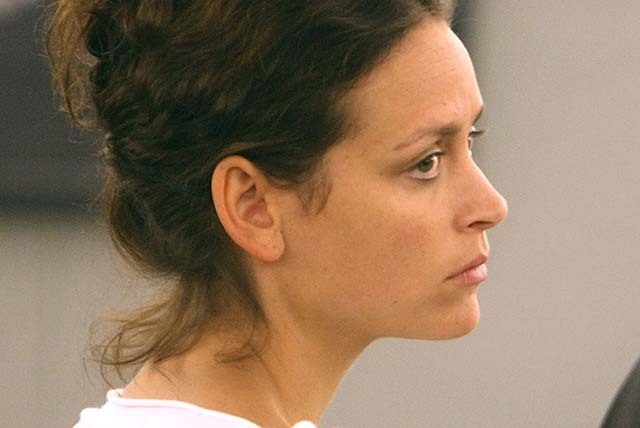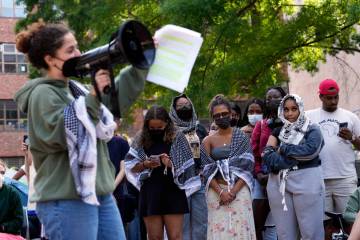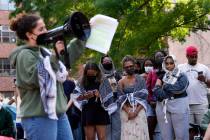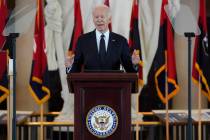Inmate hospitalization rise costing Nevada millions of dollars more
CARSON CITY — An increase in inmate hospitalizations has prompted the state Department of Corrections to seek nearly $2.2 million in additional funding from a legislative contingency fund.
In a report to the Nevada Board of Examiners, Betty Farris, chief of fiscal services for the agency, said in the first half of this fiscal year, $4.6 million has been spent on inmate hospitalization compared to nearly $1.2 million in the same period in the previous year.
This has occurred even as the inmate population has remained stable at about 12,500.
No explanation was given for the increased hospitalization costs in the information provided to the board.
The state will soon get at least some relief on prison medical spending because of changes from the federal Affordable Care Act, which expanded program eligibility for inmates, the report said. As of Jan. 1, the changes could reduce outside medical costs to the agency by $2.7 million this fiscal year and $5.2 million in the fiscal year that begins July 1.
But the Medicaid component remains “unknown territory” for the agency, the report says.
The Board of Examiners, made up of Gov. Brian Sandoval, Attorney General Catherine Cortez Masto and Secretary of State Ross Miller, will consider the request at its meeting Tuesday. If approved, the request will go to the Legislature’s Interim Finance Committee for consideration on Thursday.
Prison inmate medical care is a costly proposition for the state and, until the Medicaid changes, has come almost entirely from scarce state general fund tax revenues.
The 2013 Legislature approved just less than $43 million in state funds for all inmate care in the current year, and $41 million in the second year of the budget. Of that total, outside medical costs, such as prescription drugs and hospitalization, were projected to cost $18 million this year and $18.8 million in fiscal year 2015.
Prison medical costs were raised as an issue during a recent pardons request from inmate Jamie Hein, who is serving a 10- to 25-year sentence for second-degree murder.
Hein has a genetically inherited medical condition, angioedema, which is costing Nevada taxpayers $38,000 a month for treatment while she is incarcerated. The condition involves the rapid swelling of deep layers of the skin.
The Pardons Board, including Sandoval, in November denied the request to make Hein immediately eligible for parole. The medical costs were not a point of discussion by the board in denying clemency, which Hein sought based on her efforts to reform and good behavior while incarcerated.
Prison medical costs are frequently associated with elderly inmates. Nevada had the sixth highest percentage of state and federal prisoners over age 50, at 17.2 percent, according to a 2012 report by the American Civil Liberties Union.
According to numbers that the state of Nevada supplied to the national ACLU, Nevada had 2,193 prisoners over 50, almost as many as Massachusetts, a state with more than twice the population.
The state Advisory Committee on the Administration of Justice, a panel of lawmakers, law enforcement officials and members of the judiciary meeting during this interim period, is expected to review the elderly inmate issue and make recommendations for the 2015 legislative session.
Contact Capital Bureau reporter Sean Whaley at swhaley@reviewjournal.com or 775-687-3900. Follow @seanw801 on Twitter.




























